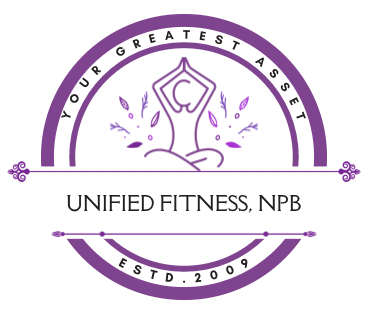Water Impacts You
Our body comprises around 60% water. Since our bodies contain so much water that means we need water to keep help us stay healthy. Water is essential for the kidneys and other bodily functions. A well-known hydration rule is to drink at least drink eight 8-ounce (237-mL) glasses of water per day (the 8×8 rule). Although there’s flexibility with the 8x8 rule, staying hydrated is important. More often than not drinks that contain high levels of sugar, additives, carbohydrates, and lots of calories are preferred over water. Drinking at least 2 cups of water to every 8oz cup of non-clear fluid is a great way to help eliminate additives in your body. Additionally, lack of or low levels of water intake can lead to altered body temperature control, reduced motivation, increased fatigue, and impact hormonal changes such as night sweats.
Here are 9 evidence-based health benefits of drinking water daily.
1. Clear and younger-looking skin. Some skin reactions, particularly in the face, can be the reaction from additives or toxins in food. High levels of water can help your body eliminate toxins.
2. May help relieve night sweats since water helps with cooling. Regulates body temperature.
3. Affects energy and brain function. Dehydration can lead to problems with thinking and reasoning since water is involved in the production of neurotransmitters and hormones.
4. May help relieve constipation. Liquid helps flush waste from your body. Hi
5. May help treat kidney stones. Higher fluid intake dilutes the concentration of minerals, so they’re less likely to crystallize and form clumps in the Kidney.
6. Aid with weight loss because water can increase satiety and boost your metabolic rate.
7. Forms saliva and mucus which helps in digesting food and keeping our mouth, nose, and eyes moist.
8. Helps with sweating and the elimination of urine and feces.
9. Lack of water can cause Improper kidney function due to the build-up of waste products and excess inside the body.

Living with a chronic disease can turn daily life into a series of struggles, often impacting one's physical function and overall well-being. For many individuals, the experience can be likened to walking through a fog—tasks that used to be simple now feel overwhelming. Common Symptoms and Daily Struggles Many chronic conditions come with symptoms like chronic pain, fatigue, and reduced mobility. Here’s how these symptoms can manifest in everyday life: Chronic Pain: Imagine waking up each day with persistent aches that make even getting out of bed a challenge. Activities as mundane as doing the dishes or playing with children can become daunting tasks. This pain not only affects physical activities but can also lead to mental fatigue and frustration. Fatigue: Daily energy levels can plummet, leaving individuals feeling exhausted after even minor tasks. A trip to the grocery store might seem like climbing a mountain, and this lack of energy can lead to social isolation, as people begin to withdraw from activities they once enjoyed. Reduced Mobility: For many, everyday tasks such as climbing stairs or standing for long periods can become insurmountable challenges. This not only affects physical independence but can also erode confidence and self-esteem. Understanding these experiences allows for a more empathetic approach to treatment and support, emphasizing the need for a tailored fitness and wellness regimen. The Role of Exercise and Wellness: A Path to Improvement In the face of chronic illness, the role of exercise and wellness cannot be overstated. A personalized fitness program can help manage symptoms, slow disease progression, and ultimately enhance one’s quality of life. 1. Improved Insulin Sensitivity: For individuals with diabetes, regular physical activity helps to increase insulin sensitivity, making it easier for the body to use sugar effectively. This can lead to better blood sugar control and reduce the risk of complications. 2. Better Cardiovascular Fitness: Engaging in light to moderate exercise strengthens the heart and improves circulation, reducing the risk of heart disease. A consistent routine can enhance stamina, making daily activities less daunting. 3. Enhanced Strength and Flexibility: For those dealing with chronic pain or mobility issues, exercising can enhance muscle strength and joint flexibility. This not only aids in pain management but also promotes a greater sense of independence. By incorporating these elements into a wellness program, clients can experience tangible improvements in their daily lives. Actionable, Simple Tips: Immediate Steps for Better Health To empower individuals in their journey towards better health, here are some practical, easy-to-implement tips: Healthy Recipe Idea: Try starting your day with a nutritious smoothie! Blend together a banana, a handful of spinach, one tablespoon of nut butter, and a cup of almond milk. It's a quick source of energy and can be made in under five minutes. 5-Minute Morning Stretch Routine: Start your day with five minutes of gentle stretching. Focus on neck and shoulder stretches—slowly tilt your head side to side and roll your shoulders. This can ease tension and set a positive tone for the day. Hydration Hacks: Keep a water bottle handy throughout the day. Adding slices of fruit like lemon or cucumber can make drinking water more enjoyable, helping to keep hydration levels up! Implementing small changes in daily routines can significantly impact overall well-being, providing a sense of accomplishment and motivation to continue. Client Success Stories: Real People, Real Change The power of shared experiences can be incredibly motivating. Here are a couple of anonymous success stories from clients who have transformed their lives through personalized coaching: Anna's Journey Anna came to us feeling overwhelmed by her chronic fatigue due to fibromyalgia. Through a tailored fitness program that included gentle exercises and nutrition advice, she began to regain her energy. Now, she can enjoy walks with her grandchildren and feels more connected to her family—something she thought was lost forever. Mark's Transformation Mark struggled with mobility issues after a knee injury. With consistent strength training and flexibility exercises, he has improved his mobility and reduced his pain. He recently completed a 5K walk, an achievement he didn't think was possible! These real-life transformations highlight not just the effectiveness of personalized coaching but the hope and possibilities that await those willing to take the first step towards better health. Chronic diseases affect individuals deeply, but with empathy, education, and actionable support, managing symptoms and improving quality of life is not just a dream—it can be a reality. Let's embrace the journey together, celebrating every small victory along the way.

Managing Loneliness as You Age Loneliness is a complex and difficult feeling that can affect anyone at any age. As young adults, we give little thought to getting older and feeling alone. We live each day not considering that the social aspects of our life may not always be as we age. Loneliness can leave you feeling empty, disconnected from the world, fearful of dying with no one around, or even abandoned. Loneliness is often described as a sense of isolation or disconnection from others. It can be caused by a variety of factors such as social isolation, loss of loved ones, or even just a lack of meaningful connections with others. We were never intended to live life alone at any age or life stage. Managing loneliness can be challenging, but several strategies can help you cope with loneliness which include reaching out to loved ones and joining social groups and communities. Engage in activities that bring you joy and fulfillment. Try something new that will require you to step out of your comfort zone. Instead of focusing outwardly on others to fill the void look inward toward yourself. Focus on having a relationship with yourself and usually the law of attraction will occur. Always be kind to those you encounter which can open the door for relationships to develop. Older adults tend to isolate themselves when managing various medical conditions out of fear of judgment, embarrassment, or fear of rejection. Accept and understand that aging and the changes that occur along the way are part of the life cycle. Remember that it's okay to feel lonely, and seeking support from others can make a big difference., such as staying connected with friends and family, engaging in activities that bring joy and fulfillment, and seeking support from mental health professionals when necessary. It's important to remember that feeling lonely is a common experience, and there is no shame in seeking help or support.
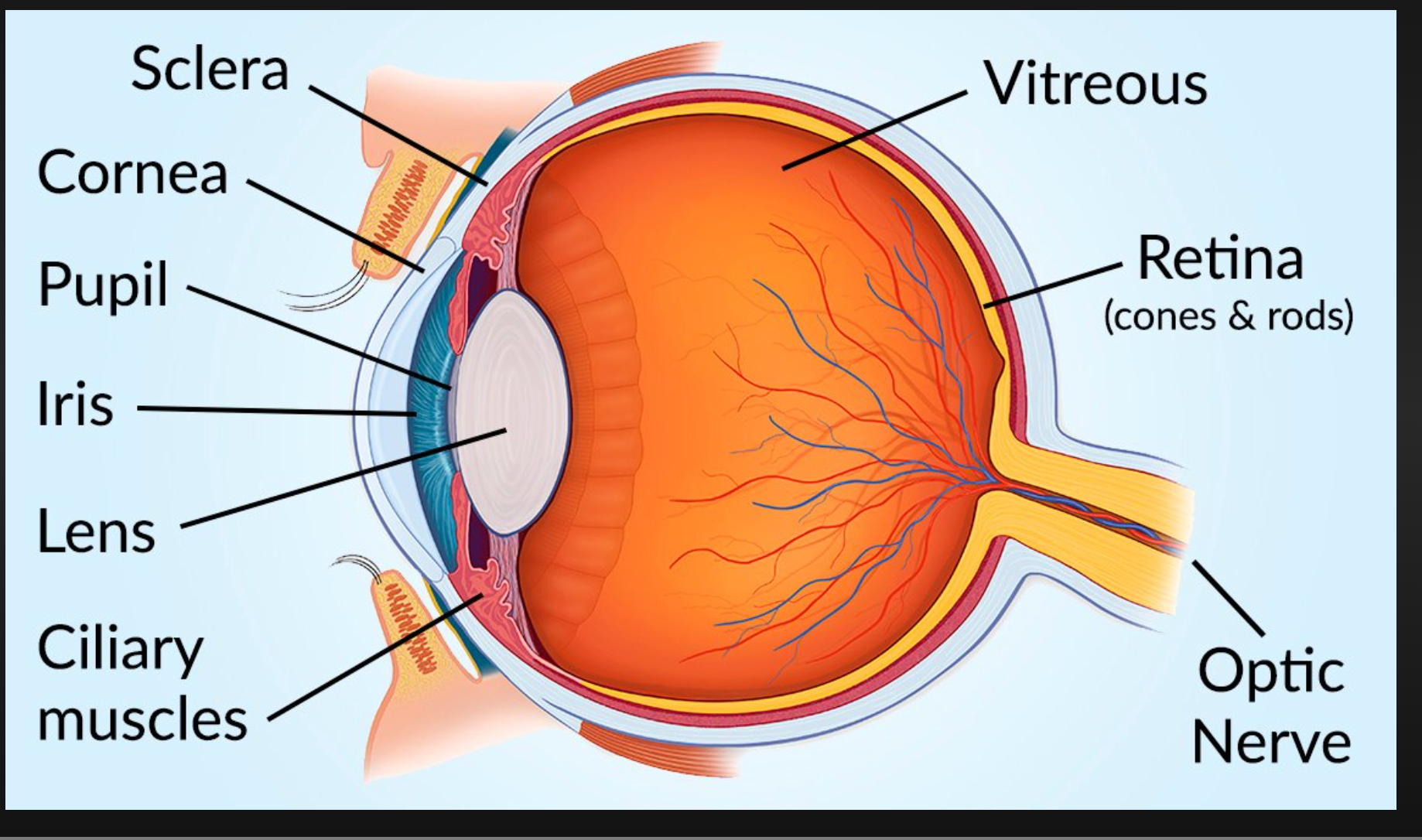
Your Eyes are Windows To Your Health Eyesight is one of the most important organs of our senses. Our eyes provide light, knowledge, beauty, and many other blessings. However, a time may come when an eye disease impacts your vision. One of the most common eye conditions that impacts millions of people is Cataracts. Cataracts are cloudy areas that form on the lens of your eye. As you get older, the proteins in your lens beak down, forming cloudy patches that affect your vision. You may experience symptoms such as double or blurry vision, eye strain to see clearly, a film over your sight (like looking through a dirty window), or total blindness in an eye. Cataracts can be easily corrected. There are various types of age-related Cataracts. Many people notice or are diagnosed with the condition in their 50s. Depending on a person’s eye health the condition can occur at any age. One of the leading causes of blindless in older adults is from Cataracts. The average Cataract surgery age is 65. The only way to treat Cataracts is to replace the optical lens. Now that you have some facts about Cataracts lets discuss why it’s important to care for your Cataracts. Cataracts are non-reversible and usually get worse with time. The worse the Cataracts becomes so does your quality of life. Your ability to see at a distance when walking, working, or performing the tasks of daily living will be impacted. For example, if you are walking and can’t identify an object or person clearly from a distance you may not be able to detect if danger is approaching. Seeing clearly gives you time to decide before encountering the situation, person, animal, or object. Let’s say you need to balance your budget but can’t see the numbers clearly. You may need to rely on someone else to manage your finances. Or you may write the wrong digit on a check, or miss important information that impacts what you pay. That's why it's important to be accountable for the health of your eyes. Having eye surgery can seem scary or bring on anxiety. Not knowing how your eyesight may be impacted after surgery can make you feel unsure about having the Cataracts removed. Or cause you to prolong getting the procedure. The question to ask yourself is if your health and quality of life is worth correcting your eyesight?

Make Peace With Your Aging Health Aging is a part of life, and it is something that we all have to accept. Our bodies are designed to decay. Many older adults experience physical, metabolic and/or cognitive limitations. There isn't a magic pill, elixir, eating or exercise program, surgery or any other worldly created idea, process, or method that will stop you from aging. Don't let changes in your health make you resent getting older. Every day is a new adventure because God's plan is to renew us. And getting older is part of the adventure. However, aging doesn't mean that you can't take care of yourself and feel your best. It's important to practice healthy habits like eating nutritious foods, exercising regularly, and getting enough sleep to ensure that you look and feel your best. With the right approach, you can age gracefully and stay healthy and active for many years to come. Here are some tips that will help you feel better: Eat a nutritious diet. Minimize processed foods and sugary drinks. Stretch most days of the week. Exercise regularly and walk daily. Connect with people you value and vice versa so you feel connected. Make and attend annual wellness check-ups. Meditate/stay in prayer daily for mental wellness. Remember your blessings and be grateful. There is always someone who has it worse. Accept where you are in life. The path God has for you is yours. Drink a lot of water daily. Love all of you. Know thyself and you will never need anyone to validate, or stay with you. The biggest mistake you can make is ignoring changes in your health. Becoming angry that you are aging and letting the worlds view of aging direct you leads to low self-esteem, depression, and anxiety. There are times that you may not know what to do or how to get yourself on the right track to managing a medical condition or improving in your appearance. Be accountable to yourself and visit a doctor or specialist when you have physical, mental or emotional concerns. Aging doesn't have to rob you of wellness in the later years of life. Never forget everyone ages differently and at various rates. You have the power to make peace with your aging process.
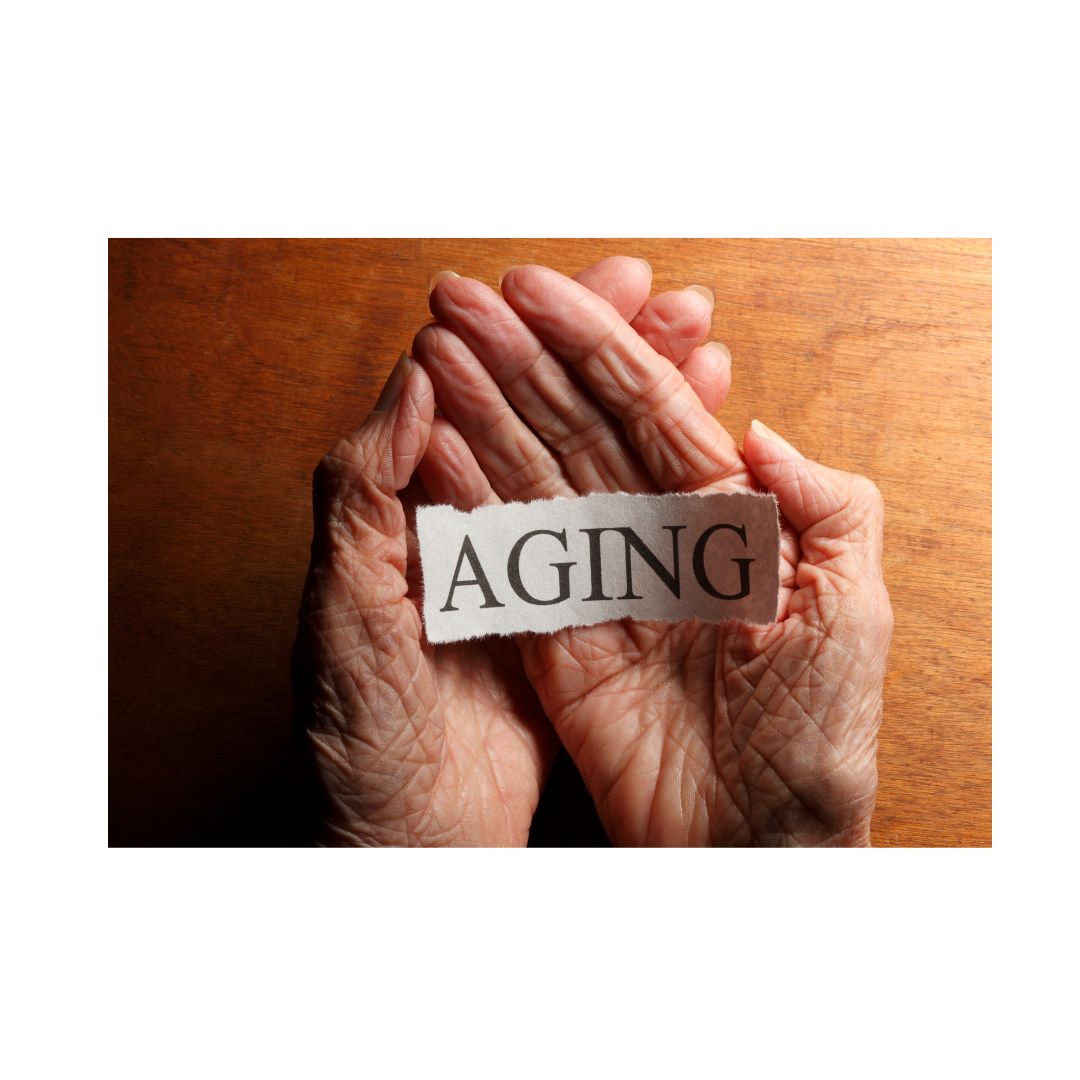
Accept Your Aging Body Suddenly you notice changes in your physical appearance. Maybe it's the wrinkles around your eyes, the creases around your mouth when you smile, or a change in your vision. Maybe it's a physical change such as weight gain, inability to run the same distance you ran years ago, or a diagnosis of arthritis. And even more concerning is changes in your hormones which can impact your metabolism or lead to various metabolic diseases. Some changes you see and feel, while many go unnoticed until something happens. Regardless to what physiological or psychological changes you are experiencing, research has proven that being accountable for your aging health can make a difference in your ability function in the later years of life. Your perception of how your aging will impact your daily living. Wrinkles can be hidden with quality make up and technique. However, it doesn't change the fact that under the makeup are wrinkles. Accepting that the wrinkles represent the years you have been blessed to live, and the time you had to laugh, smile, and sometimes cry outweighs the negative self-talk of having old skin. You can color gray hair. However, it doesn't change the fact that your hair strands pigment has changed. Once the hair color fades the gray returns. Instead of coloring the gray maybe consider getting a hairstyle that compliments you with gray hair. If you find that your ability to perform physical activities such as running and walking for periods of time has changed consider endurance training, breaking up the routine, or creating a cardio program that has goals which can help you feel accomplished. There are numerous things you can do to improve, slow, and manage your aging process. Below are some tips that may help your age better. Not just your physical appearance or health, but mental health as well. Eat a nutritious diet. Minimize processed foods and sugary drinks. Lotion your skin daily to help keep it moisturized and maintain elasticity. Get 7-8 hours sleep each night. During rest is when the body rebuilds and heals. Make exercise (resistance training and cardio) a part of your life. Have plan for each day. This can help you stay active and in shape Socialize regularly. We were designed to “love our neighbor”. Essentially social connections can help prevent, slow, or delay cognitive decline. Get dressed every day. When many people age, they start to lose care for their appearance. Take advantage of opportunities to travel, visit friends, attend events. These are great opportunities to keep growing and learning. After 50 stress and anxiety should not be allowed in your life. If people, places, or things make you stressed remove the variable from your life. It’s ok! If someone makes you feel uncomfortable, inadequate, or is tries to damage your self-esteem, they MUST GO. You should never feel uncomfortable within yourself or space. Give, love, and help others. Never give, love, and help those who don’t want to be helped. Spending energy and resources where it adds no value or help is a waste. Value your time. Spend time where and with whom you feel connected. Make and attend annual wellness check-ups. The biggest mistake you can make is ignoring changes in your health. There are times that you may not know what to do or how to get yourself on the right track to manage a medical condition or change in your appearance. Visit your doctor or specialist when you have physical, mental or emotional concerns.

Your Changing Sleep Pattern Emotional, physical, and mental health all contribute to your overall well-being. Essentially all these aspects affect the whole of you. Intentionally sticking with a healthy sleep pattern should be a part of your self-care plan. Sleep does many wonderful things for our body. While you are resting your body is hard at work repairing, protecting, and preparing for the next day. Sleep affects your health in many ways such as: Heart Health Sleep helps keep your heart and blood vessels healthy. Lack of sleep can cause high blood pressure, and heart disease over time. Metabolism - Sleep helps regulate your metabolism. Lack of sleep can cause blood sugar levels to fluctuate. Fluctuating blood sugar levels affect your mood, and energy levels, and can impact mental function (think depression/anxiety). Stress Sleep helps your mind and body relax. Stress can cause you to be reactive, make rash decisions, and feel anxious. Inflammation Inflammation (sometimes you don’t see or feel inflammation) damages internal structures and increases the risk of disease. Weight Loss/Maintenance Sleep impacts the hormones Ghrelin (a hormone that stimulates appetite) and Leptin (a hormone that suppresses appetite). If you want to lose or maintain weight a good night's sleep is part of that equation. Memory and Alertness A good night's sleep makes you feel energized and alert. In addition to improving your memory. Repairs While you are sleeping your body repairs. Muscles that have been torn from exercise heal and grow. Protein which is the building block of cells is repaired to make you stronger and protect your immune system. How much sleep do you need? Age Group Recommended Hours of Sleep Per Day Preschool / 3–5 years / 10–13 hours per 24 hours (including naps) School Age / 6–12 years / 9–12 hours per 24 hours Teen / 13–18 years / 8–10 hours per 24 hours Adult / 18–65 years / 7-9 hours per night As we age our sleep patterns change. Most people find it's more difficult to sleep. They wake up more often during the night and earlier in the morning. The change generally occurs due to the aging of your internal clock also known as SCN (Suprachiasmatic Nucleus). The aging of the SCN affects your circadian rhythms which impacts your sleep. Additionally, disruption in the melatonin and cortisol hormones can impact your sleep as well due to an imbalance. Mental and physical health conditions can interfere with sleep. Other factors like medication, stress, and sleeping environment can impact your rest. Try to identify the source of your sleep disruption so you can get better rest. Sleep tips for older adults: Exercise - helps you fall asleep faster, longer and better quality of sleep. Avoid Substances that discourage sleep - caffeine, tobacco, sugar, late meals/snacks. Sleep Schedule - keep a regular sleep schedule (even on the weekends). Bed-Time Routine - relaxing activities such as reading, meditating, listening to calming music. Technology - avoid or minimize use of technology and television before bed. Phone - keep a phone nearby just incase you need help getting out of bed, or have an emergency during the night. Sleep Aids - with your doctors approval consider using a sleep aid to help you rest.
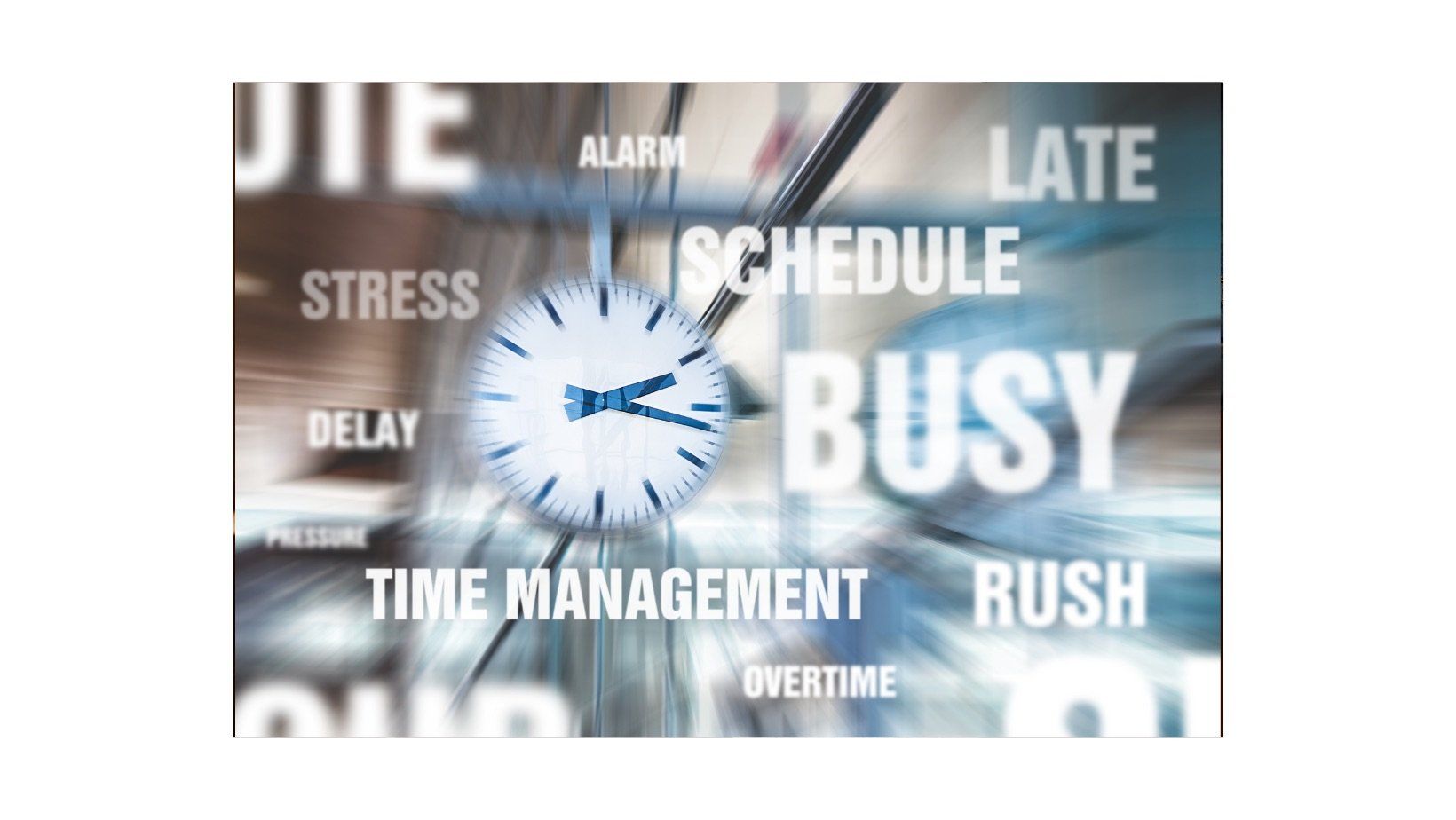
Remaining Happy In A Stressful World Many changes are happening in the world around us. Wars among different nations threaten our way of life. Technology that was supposed to be user-friendly and enhance our lives has become a tool of distraction, destruction, and dehumanization. The loss of family and friends whether voluntarily or involuntarily impacts our emotional and mental wellbeing. Changes in our financial stability such as retirement, job loss, and/or inflation impact our budget which can be stressful. Unexpected changes in our health as we age can happen regardless of how well we eat or exercise regularly. Many of these challenges we have no control over. And many of these changes can be very stressful. Many people find themselves feeling irritable, overwhelmed, and just not at their best when they feel overloaded. You know what things or situations are affecting your happiness. For example, the person you’re around who makes you feel drained when you part. Working 12 to 13-hour days to prove yourself to colleagues and/or make more money to incur more things, stuff, and debt that won’t make you happy long-term. Spending time in environments that aren’t conducive to who you are as a person. Participating in activities that aren’t your desires but someone else's interests. When you want to do something, you will find a way to make it happen. For example, when you want to buy a home you will work hard, save your money, and do everything you need to do to buy the home. The same concept applies to the things you want for your life. How can we remain happy in a stressful world? Stay connected with people who add value to your life. Find inner peace. Turn off the cell phone and give social media a rest to spend face-to-face time with the people you care about. Change your outlook on life and cultivate optimism. Truth be told, many challenges that we worry, about or stress over don’t matter. Most of our worries don’t matter because the outcome has already been determined or resolved. Wait, be patient, and try to focus on living a life of significance each day. Remove people, places, and things from your life that drain your energy. Make room in your life for the people and things that are important to you. Participate in physical activities such as working out, walking, or taking up a sport. Laugh and smile each day. Show gratitude and appreciation for what you have accomplished. Always remember that someone is worse off than you. Listen to your soul’s guidance to stay true to yourself. Listen to your heart often, it does not harm you. Seek help from friends and family or outside sources. Many changes are happening in the world around us. Regardless to what's happening around you, what comes through and out of you affects your happiness. The tips above applies at every age and life-stage.
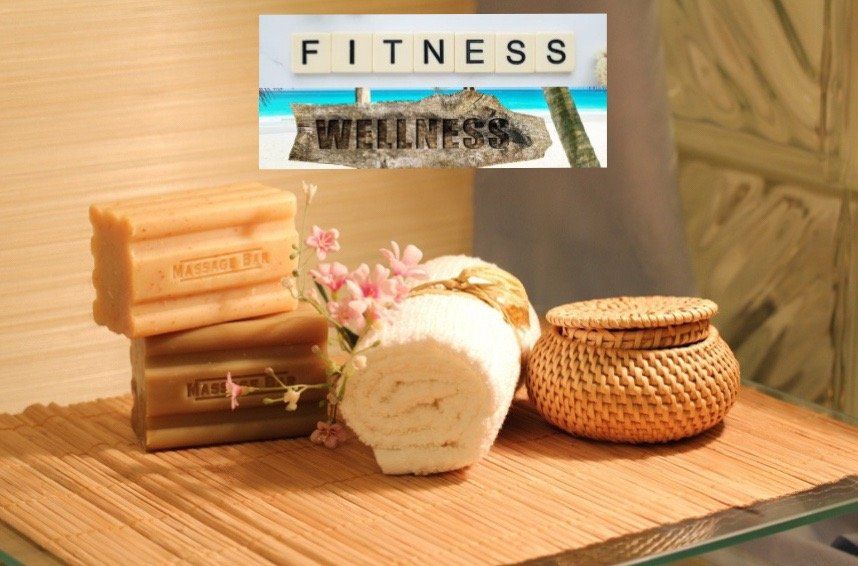
Self-Care This New-Year January and February are optimal times to reflect on the prior year and set intentions for the new year. Creating a self-care plan for the new year is an excellent way to take charge of your health and encourage family members to do the same. According to the substance abuse mental health services administration, there are eight areas in that you can take action to improve or preserve your health. Each aspect of your health such as emotional, intellectual, environmental, physical, spiritual, financial, occupational, and social all contribute to your overall well-being. Emotional wellness helps us control feelings and behaviors. Participating in recreation and leisure activities helps us manage our emotions. Spending leisure time listening to music, reading petting your dog enjoying your favorite food, or just meditating all impact your emotions. Maintain or improve your intellectual wellness by Reading regularly, solving crossword puzzles playing a musical instrument, or learning a new skill or language. Connect the environment to your Health. Breathe the fresh air, take walks in a safe place to connect with nature, or plant a garden to help maintain your environmental wellness. Physical wellness is affected by physical activity, nutrition, and sleep. The American College of Science and Medicine (ACSM) recommends 150 minutes of moderate activity or 75 minutes of intense activity each week for overall health and well-being. Physical activity can include yoga, bike riding, running, walking, jogging, dancing, tennis, jumping rope, engaging in sports, and gardening. Focus on improving your eating habits and limiting the use of alcohol and cigarettes. Aligning your spirit with your higher power is a great way to stay rooted in your meaning and purpose for life. Financial wellness allows you a sense of comfort in your finances and the ability to live comfortably, enjoy life, and take care of your health. Consider creating a budget, or reviewing it periodically to limit unnecessary expenses, and possibly take a vacation. Occupational wellness supports having meaningful, enjoyable work while striving for work-life balance. Many people perform jobs they don’t like for monetary reasons, obligations, or because it’s a noteworthy profession. Often many people have no purpose or passion for their profession. When it’s not possible to change your occupation consider balancing it with personal activities that give you purpose. Social wellness gives us a sense of belonging to a group or community. Choose carefully when selecting groups, communities, or friends to share in your life. Many times, we attach to people, groups, or other forms of social communication to fill an internal need, yet they are not in our best interest. Make new acquaintances and explore options for those people you might want to spend time with. Work to keep your self-care plan simple. Begin slowly with any change you want to incorporate into your life. Reflect on the changes in your life to ensure they line up with your needs and wellness goals. Each aspect of your health such as emotional, intellectual, environmental, physical, spiritual, financial, occupational, and social all contribute to your overall well-being. Essentially all these aspects affect the whole of you.
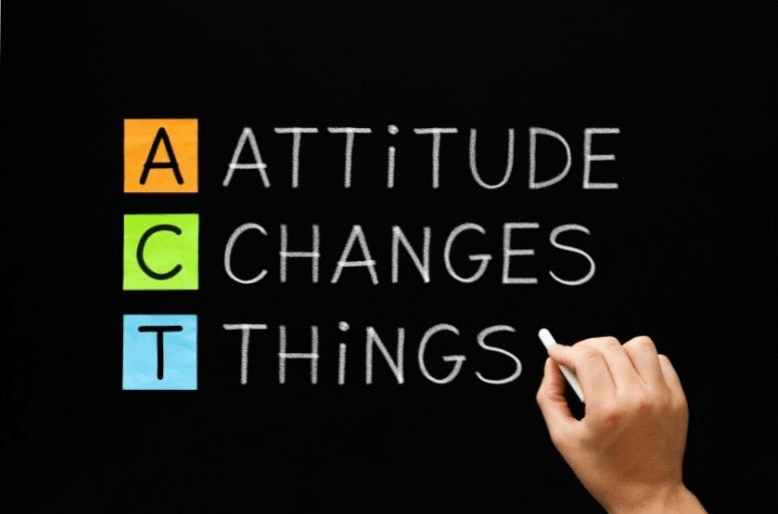
Your Attitude Is Everything! Have you heard the saying “Aging Isn’t For Sissies”? That said it’s a fact! And one of those facts is that your attitude can have a profound impact on your health. When you start to experience changes in your eyesight, cognitive skills, and/or physical or functional abilities it can discouraging and cause you to feel and think negatively about how you’re aging. Many institutional policies and procedures that perpetuate stereotypical beliefs about aging can cause you to ignore opportunities for living a satisfactory life. And to make matters worse, negative perceptions perpetuated by younger adults about aging further impacts the beliefs and attitudes of older adults. Being the joke in regards to your age adults, or being spoken down to because you’re older and it appears that you’re not hip or in tune with the younger adult, or people assuming because you’re dealing with various ailments that you cannot perform certain tasks, being replaced due to “younger and newer mindset of society” or even poking fun at yourself to help you deal with your physical or physiological changes can negatively impact your attitude... You can’t change other people’s perceptions or behavior about aging. However, your attitude towards your aging can impact your functional health. Adults who held more positive attitudes towards their aging survived on average 7.5 years longer than those who had a negative attitude toward their aging (Levy, Slade, Kunkel, & Karl, 2002). A great way to maintain a positive attitude about aging is to participate in physical activity regularly. Engage with older adults who are similar to you, have a similar interest, or are doing things in which you are interested. Get up in the morning do your hair, wear make-up if that’s what you like, care for your hygiene, and dress fashionably. Engage with other people regularly. The Lord promises “I will be your God throughout your lifetime -- until your hair is white with age. (Isaiah 46:4). Here’s proof that aging is supposed to happen, it’s not a process we’re supposed to avoid or defy, even though society practices ageism embrace aging. Know how blessed you are to still be living at your age, encourage the younger generation by showing that no matter how your body changes staying active, involved in life, and maintaining a positive attitude will help you manage the aging process well.
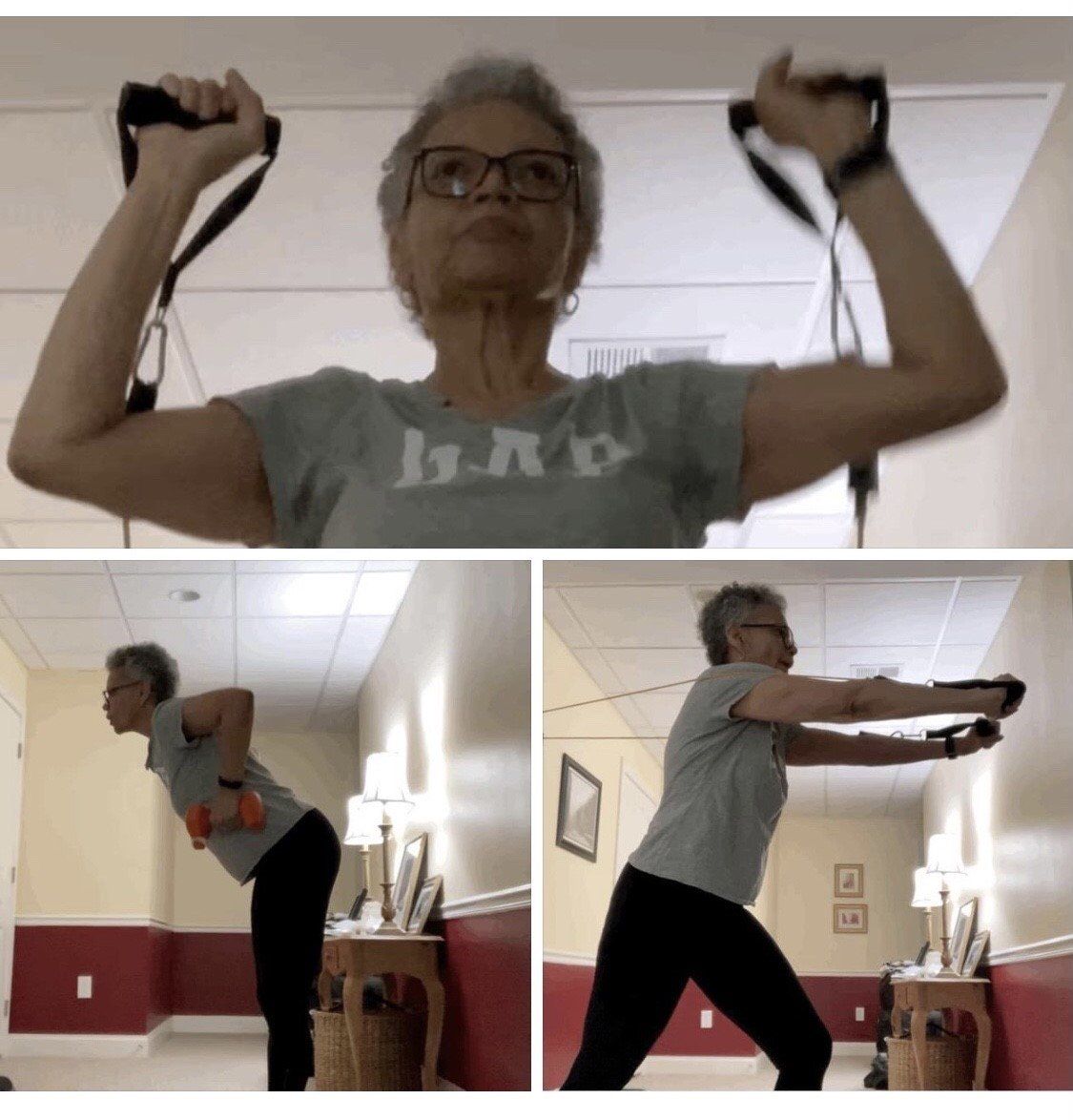
Client lost 40 lbs. naturally by working with a UFit-NPB coach. She did the hard work in home and virtually. Age really doesn't matter when it comes to getting fit and looking great. Anyone can improve their health with the right coach because health is about more than just aesthetics. Looking to improve your overall health? Call us at 302-528-5021 for a consultation.
